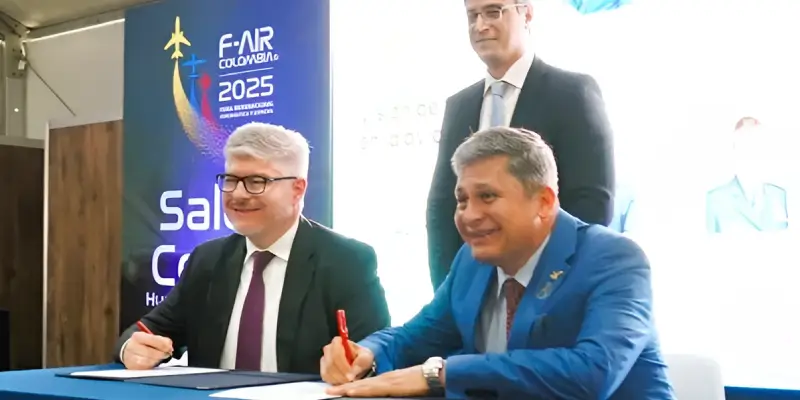Colombia, through its Civil Aviation Authority, has formally joined the Assistance, Capacity Building, and Training for Sustainable Aviation Fuels (ACT-SAF) Program, led by the International Civil Aviation Organization (ICAO). This decision reinforces the country’s commitment to aviation sustainability and reducing the environmental impact of air transport.
ACT-SAF is a global initiative spearheaded by ICAO’s Environment Office (ENV), with support from its Air Transport Bureau and the Capacity Development and Implementation Bureau (TCB). Its core objective is to provide technical and strategic assistance to member states to accelerate the development, production, and use of Sustainable Aviation Fuels (SAF).
Concrete Benefits for Colombia
By joining ACT-SAF, Colombia will gain access to key tools and opportunities to advance its energy transition in the aviation sector:
- Strengthening of technical and regulatory capacities.
- Exchange of regulations, knowledge, and best practices with other countries.
- Active participation in international workshops, consultations, and forums.
- Direct support in formulating national action plans for SAF adoption.
- Implementation of pilot projects in collaboration with global partners.
Additionally, Colombia can play a dual role within the program: as a requesting state or as a supporting entity, depending on the needs of each initiative.
A Cooperation Framework Without Financial Burdens
ACT-SAF operates on principles of technical collaboration, without imposing mandatory financial commitments on participating parties. ICAO will coordinate all activities, consulting closely with participants and tailoring each action to available resources.
This inclusive approach enables more countries, regardless of their development level, to contribute to the shared goal of decarbonizing air transport without facing economic barriers.
SAF Vision 2050: A Global Roadmap
Colombia’s participation also aligns strategically with ICAO’s SAF Vision 2050. This vision envisions a decarbonized global aviation system, grounded in the three pillars of sustainable development defined by the United Nations: economic, social, and environmental.
In this context, Colombia reinforces its leadership in green initiatives, such as the national program Clear Skies: Aviation for Life, led by the Colombian government.
Collaborative Efforts with Key Stakeholders
The Civil Aviation Authority is taking concrete steps to protect the environment and is working alongside all national aviation stakeholders. This includes airlines, ministries, and especially Ecopetrol, which plays a central role as a strategic ally in sustainable fuel production.
With this move, Colombia joins international efforts to promote cleaner aviation and strengthens its position as a regional leader in aviation sustainability.
Related Topics
Etihad to Deploy Airbus A380 to Bangkok for First Time: Increased Capacity and Thailand Debut of “The Residence”
Air India Records Highest Rate of Technical Incidents in 14 Months During January
Embraer and Adani Defence & Aerospace Elevate Alliance: Agreement for an E175 Final Assembly Line in India
Lufthansa Group and Air India Sign MoU for Joint Business Agreement Following EU-India Free Trade Deal

Plataforma Informativa de Aviación Comercial con 13 años de trayectoria.




